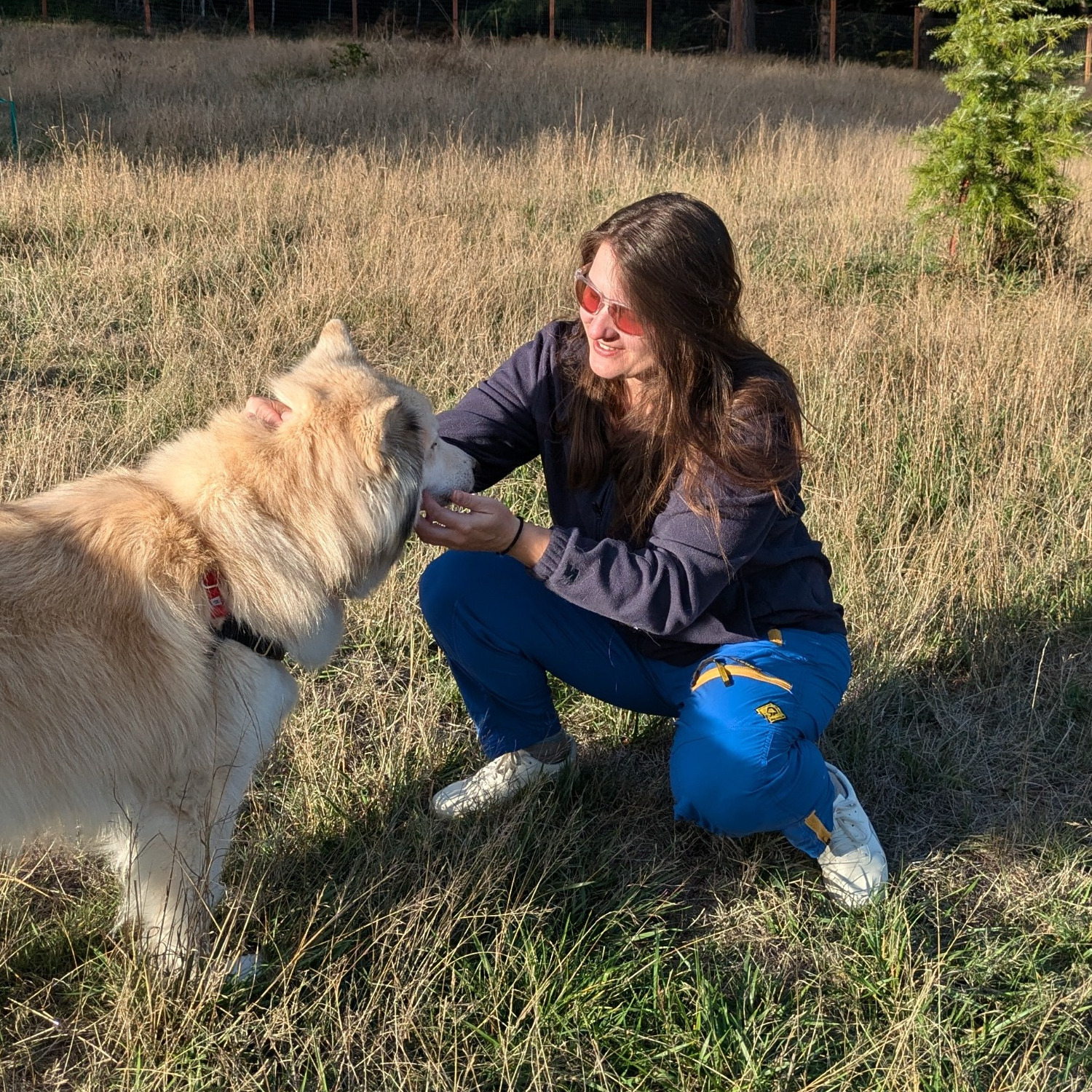Hello! I'm Natalya Savka (she/her)
I help experienced authors get clear on what their next book needs to say.
I hold a book coaching certification from Author Accelerator and a master's in creative nonfiction writing from Colorado State University. I'm also a trusted nonfiction ghostwriter.
For over a decade, I wrote personal essays and deeply reported stories for environmental and travel magazines, including Sierra Magazine, Pacific Standard, and Colorado Life. I eventually turned to books because I craved more space to slow down, pay closer attention, and explore complexity—and because a winter of long afternoons at my local public library reminded me just how much I love books.

My Coaching & Writing Philosophy
These three beliefs tend to show up, subtly or not, in every editorial letter and coaching session with me:
Some favorite things
-
Milo
-
climbing, hiking, and just being outside
-
Tacoma, Washington (home)
-
rain, rainbows, and gray
-
people who forge their own path
-
a dark fern forest in midsummer

This is Milo. Like all my favorite people, Milo obeys every command he agrees with.
About Kupala (koo-PAH-lah)
Kupala is named after Kupala Night, the ancient Slavic midsummer holiday that celebrates the shortest night of the year with a bonfire (and garlands and river water and other beautiful things).
Around the fire, there's singing, laughter, warmth. There's also a legend: Somewhere out in the forest, deep in the dark, a rare fern is said to bloom on just this one night a year. It's a flower of impossible beauty, believed to bring great insight to anyone who finds it.
In the middle of the night, every celebrant faces a choice: stay by the comfort of the fire, or enter the forest, where the ground is uneven and there are no clear signs, no gaurantees you'll find anything at all.
Every author writing a second book faces this same choice. As you wrote your first book, you built the fire. You learned how to keep it lit, and how to invite others in.
With your second book, you can choose to stay by the fire. Or, you can decide to follow your curiosity and step into the forest, in search of a greater truth in your writing.
At the heart of my coaching practice is an invitation: Join me in the forest. Make the process of writing your second book feel like a night walk in the woods. Make it about learning to trust your instincts while traveling through the unknown. About moving away from "Can I really do this again?" to "What happens when I go even deeper?"
This coaching practice might be for you if...
-
You're feeling the restlessness of staying in familiar territory.
-
You know there's something deeper you haven't written yet.
-
You sense that writing into the unknown is the harder path, and you want to do it anyway.
The Kupala Fellowship
Every year, I offer six months of free book coaching to a local Tacoma-area writer who is eager to expand their creative reach. Unlike Kupala’s other offerings, this program is not limited to published authors. What matters most is your willingness to grow. Learn more about the fellowship and how to apply.

Natalya & Milo are ready to meet you.
Let's talk about what entering the forest might look like for you as you write your second book.